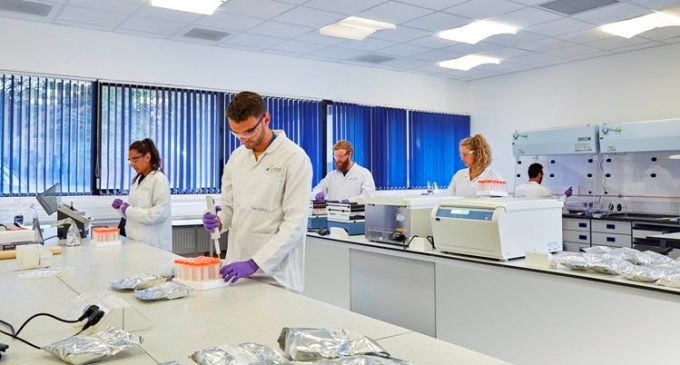RSSL Opens Dedicated Acrylamide Laboratory

Reading Scientific Services Ltd (RSSL), a global leader at the forefront of scientific analysis, consultancy, product development and training, has established a dedicated acrylamide testing laboratory in a move to increase capacity and reduce turnaround times. While acrylamide testing has been part of RSSL’s technical service for many years, the prospect and subsequent adoption of the new EU acrylamide legislation has prompted a rise in demand.
“The expansion of our team and laboratory space not only enables us to handle a large number of test samples in a short timeframe, it is also highly cost efficient. Benefits which are particularly important for companies undertaking large due diligence programmes involving multiple products or batches, ” explains Emilie Clauzier, senior scientist and technical specialist at RSSL.
The scientific consultancy has developed a bespoke approach to acrylamide detection using Liquid Chromatography-Mass Spectrometry (LC-MS/MS) – one of the two EU-recommended analytical techniques – and its own modified test method specifically designed to ramp up volume capabilities. RSSL’s robust service has achieved UKAS accreditation for biscuits and is equally applicable to all relevant food categories such as crisps, coffee and bread.
Emilie Clauzier continues: “Demonstrating compliance with the legislation is a priority for our customers and, due to the variability of certain raw materials, regular monitoring of products throughout the year is now essential. Our detailed analysis provides data which can be used to link recipes and processing parameters with the presence of acrylamide in the finished product. We can then work with customers to identify how to further mitigate against this formation, if levels are above the range set by the EU.
“We are also continuing to build our capability in terms of the range of test products in order to stay one step ahead of future developments. A formal review is also scheduled to take place three years from now, when it is hoped further positive progress will have been made by the industry and benchmark levels may be cut again by regulators.”
Acrylamide forms naturally during high temperature cooking and processing, such as frying, roasting and baking. Potato-based and cereal-based products are particularly high risk categories. Due to the suspected carcinogenic effect of acrylamide, levels have been monitored by the food industry for years. EU Regulation 2017/2158 – which came into force on 11 April 2018 – aims to establishes best practice, mitigation measures and benchmark levels for the reduction of the presence of acrylamide in specified food categories.


































